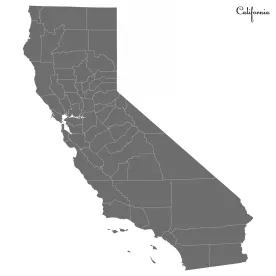In a recent blog post we reported that the advocacy group behind CPRA, Californians for Consumer Privacy, was going to court in an effort to prevent their plans to put the California Privacy Rights Act (“CPRA”) to a referendum vote in November from being derailed by a delay in the reporting of signature counts. A Writ of Mandate that was filed by the advocacy group led to a hearing before the Sacramento Superior Court, which took place on Friday, June 19, 2020.
The Court underscored neither party was at fault during oral arguments, but ultimately ruled in favor of the proponents to ensure that the procedural delay will not prevent CPRA from being on the ballot next November.
What happened?
On Friday, June 19, 2020, Judge Chang of the Sacramento Superior Court heard arguments on a motion for writ of mandate from counsel for petitioners, Alastair Mactaggart, Richard Arney, and Celine Mactaggart (all members of Californians for Consumer Privacy,) and respondent, the California Secretary of State. The petitioners requested the writ of mandate to require the Secretary of State to order counties to report their random sampling counts of CPRA initiative signatures by June 25, 2020. This date is important because the California Election Code requires the CPRA to be certified by the Secretary of State by June 25 in order to appear on the November 2020 ballot.
In her ruling, which was issued on June 19, 2020, Judge Chang highlighted that both the proponents of the initiative as well as the Secretary of State and its staff worked diligently with regard to the initiative at all times, but were confronted with numerous obstacles unique to the COVID-19 pandemic. The Court considered the impact of the reporting delay on this measure, taking into account that privacy is a constitutional right in California and that over 931,000 California registered voters signed petitions in support of the initiative. The Court balanced the inalienable right of privacy of Californians against the potential hardships for the Secretary of State, and concluded that issuing a mandate was appropriate. Judge Chang limited her ruling solely to this case and the particular circumstances related to the pandemic.
The parties were given an opportunity to meet and confer to select the appropriate remedy from various options proposed by the Court, which they did. The writ of mandate ultimately issued by the court requires all counties to report their random sample results for CPRA on or before June 25, 2020.
What will happen next?
Following the order of the court, the California Secretary of State will direct the remaining counties to report validated signatures by June 25, 2020 (some counties have already reported.) As of June 19, 2020, in order to qualify for the November 2020 ballot, the remaining counties need to report an additional 82,285 verified signatures in order for the measure to meet the minimum 685,534 signature threshold for automatic qualification from the random sampling count.
At this point, it seems highly unlikely that the CPRA will be withdrawn from the ballot in exchange for a negotiated legislative solution (as was the case with the CCPA.) The next few days will determine whether the signature threshold has been met, but at this point it is likely that the CPRA will qualify for the November 2020 ballot. If it does qualify for the ballot and passes, it will create a profound shift in California privacy law, reaching significantly beyond the requirements of the CCPA.





 />i
/>i

